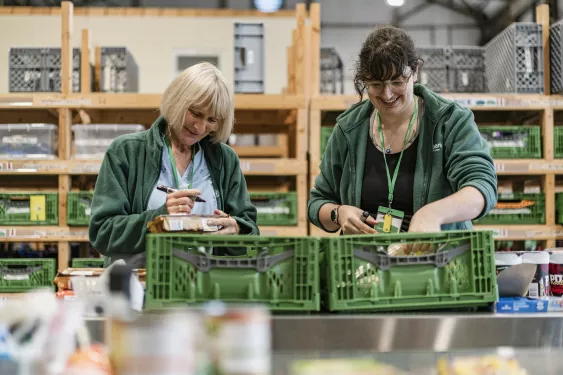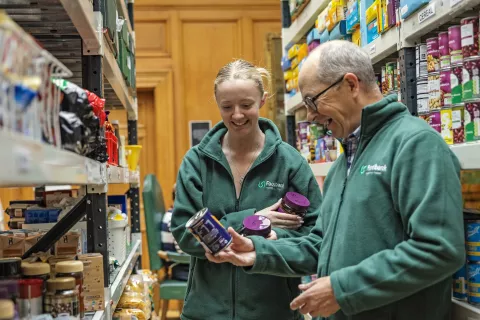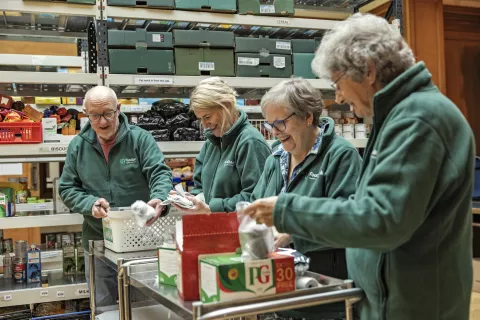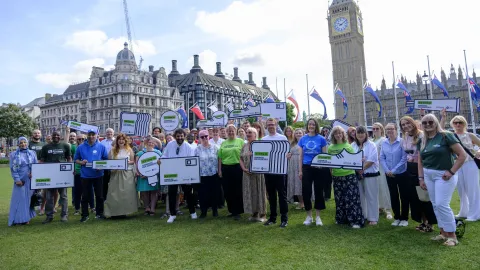Our story
Find out about Trussell’s history - from the first food bank to today’s mission to end the need for emergency food.

On this page:
When did Trussell start?
In 2000, Paddy and Carol Henderson started the first Trussell food bank after receiving a call from a mother in Salisbury who was struggling to afford food for her family. Salisbury Foodbank first opened in the garden and garage of Paddy’s and Carol’s home, providing three days’ emergency food to local people who had been left without enough money to live on.
Trussell (then called The Trussell Trust) was founded based on a legacy gift left by Carol’s mother, Betty Trussell.
A growing community
The food bank model designed by Paddy quickly gained traction. From 2004, church networks started to provide vital support to people, with the generous support of volunteers who offered their time.
Today, thousands of people are involved in running and supporting food banks. Our community has grown to more than 1,400 food banks across England, Wales, Scotland and Northern Ireland. We come together to share insights and learning with each other, to build a compelling case for change. We believe that no one in the UK should need a food bank to survive.
How we support food banks
By being part of the Trussell community, food banks receive the following support:
- Training: In volunteering, governance, and campaigning.
- Guidance and resources: From one-to-one support from a dedicated regional manager to guidance in working with people with lived experience or local decision makers, and resources for running a food bank.
- Grants and funding opportunities.
- Systems: Access to a volunteer management system and engagement tool; and a bespoke data collection system that produces vouchers, manages food stock levels, and collects statistics about why people need our help.
- Key relationships and partnerships brokered at a UK level, for example with charity sector partners, supermarkets and media.
If you have any questions about our work with food banks, please get in touch.
Ending hunger in the UK
Food banks provide a lifeline but they’re not a long-term solution - because hunger is not a food problem, it’s an income problem. That’s why we bring together experiences, evidence and solutions from food banks - and people who’ve needed support - to build a compelling case for change.
We will not stop until everybody has enough money for the essentials, and the distribution of emergency food can end for good.
Until this happens, we provide emergency food and practical support to people in their hardest moments - and work with our partners and local communities to ensure everyone gets the right help long before they need to use a food bank.


